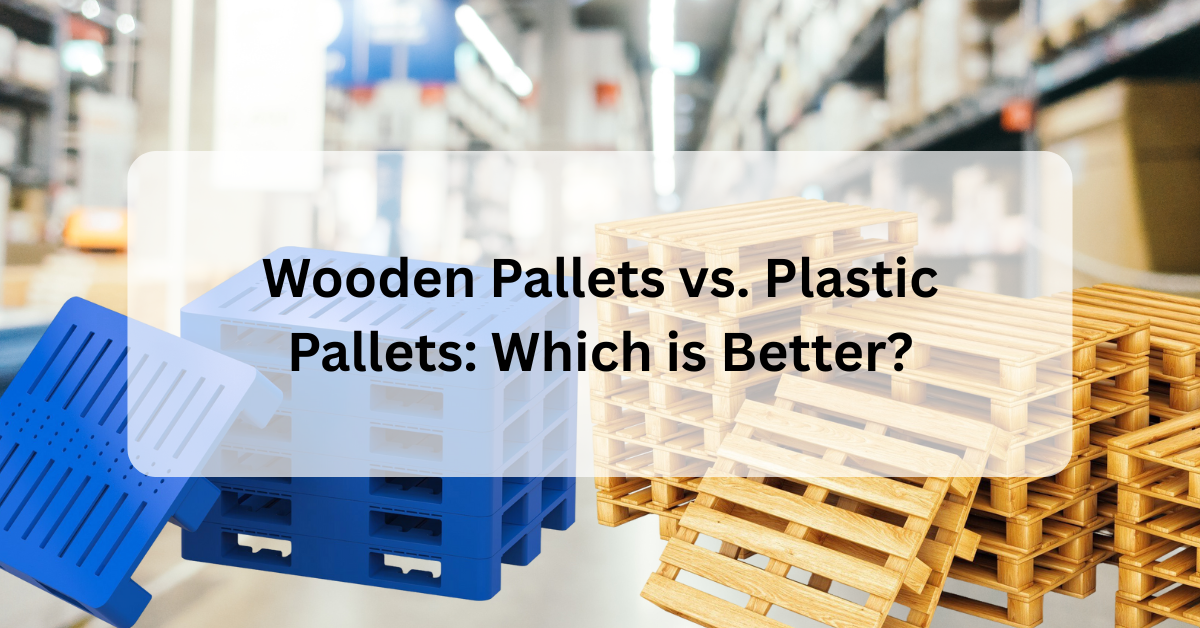In the logistics and warehousing industry, pallets are the backbone of storage, transportation, and distribution. Choosing the right type of pallet—wooden pallets or plastic pallets—can significantly impact operational efficiency, cost, and environmental footprint. While both have their advantages, understanding the differences is key to making the best decision for your business.
In this article, we’ll compare wooden pallets and plastic pallets based on key factors such as strength, durability, cost, sustainability, and industry applications. We’ll also highlight how Kaibeng, a trusted provider of wooden pallets in Singapore, can help you make the right choice.
What Are Wooden Pallets?
Wooden pallets are the traditional choice for industrial and commercial use. They’re typically made from hardwood or softwood and come in various sizes, designs, and load-bearing capacities. Known for their strength, affordability, and customizability, wooden pallets are widely used in sectors such as manufacturing, logistics, food processing, and export shipping.
What Are Plastic Pallets?
Plastic pallets are made from high-density polyethylene (HDPE) or polypropylene (PP) and are usually injection-molded or thermoformed. They’re known for their durability, resistance to moisture, and hygienic properties. Plastic pallets are often used in clean-room environments, pharmaceuticals, and food industries.
Wooden Pallets vs. Plastic Pallets: A Side-by-Side Comparison
1. Strength and Load Capacity
- Wooden Pallets: Known for excellent strength-to-weight ratio. Can handle heavy, unevenly distributed loads.
- Plastic Pallets: Offer consistent strength, but may warp under extremely heavy weight or improper stacking.
Verdict: For heavy-duty loads and rugged handling, wooden pallets are generally more reliable.
2. Durability and Lifespan
- Wooden Pallets: Durable but prone to splintering, especially under rough handling or exposure to moisture.
- Plastic Pallets: Resistant to chemicals, moisture, and impact; longer lifespan with consistent indoor use.
Verdict: Plastic pallets may last longer in controlled environments, but wooden pallets are tough and repairable for high-impact industrial use.
3. Cost-Effectiveness
- Wooden Pallets: Generally cheaper upfront. Easy to repair and maintain. Ideal for one-time or short-term use (e.g., export shipping).
- Plastic Pallets: Higher initial cost. Not cost-effective for one-way shipping or if frequently lost/damaged.
Verdict: Wooden pallets win for affordability and flexibility, especially for businesses with tight budgets or one-way logistics needs.
4. Environmental Impact
- Wooden Pallets: Made from renewable resources. Biodegradable and recyclable. Can be repaired and reused multiple times.
- Plastic Pallets: Non-biodegradable but recyclable. Production requires more energy and emits more CO₂.
Verdict: Wooden pallets are more eco-friendly when sustainably sourced and reused.
5. Hygiene and Cleanliness
- Wooden Pallets: May absorb moisture and harbor bacteria or pests if not treated properly. Must comply with ISPM 15 standards for international shipping.
- Plastic Pallets: Easier to clean and sterilize. Ideal for environments requiring high sanitation.
Verdict: Plastic pallets are better suited for hygiene-critical industries like pharmaceuticals and fresh food processing.
6. Repairability
- Wooden Pallets: Easy and cost-effective to repair with basic tools.
- Plastic Pallets: Usually non-repairable; damaged pallets often require full replacement.
Verdict: Wooden pallets are the clear winner for businesses looking to reduce maintenance costs.
Which Industries Prefer Wooden Pallets?
While both types of pallets have their place, many industries still rely on wooden pallets for their day-to-day operations. These include:
- Manufacturing: Heavy machinery, tools, and parts
- Construction: Cement bags, pipes, and bulky materials
- Export and Shipping: ISPM 15-treated wooden pallets for compliance and one-way trips
- Retail and Distribution: Flexible, cost-effective palletizing of consumer goods
For many businesses, wooden pallets strike the ideal balance between cost, strength, and sustainability.
Why Kaibeng Is Your Go-To Supplier for Wooden Pallets in Singapore
With over three decades of experience, Kaibeng Wooden Case Mfg Pte Ltd is a trusted name in Singapore’s industrial packaging and pallet supply sector. Our wooden pallets are crafted from high-quality timber and engineered to withstand tough industrial conditions.
Here’s what sets Kaibeng apart:
✅ Custom Pallet Solutions – From light-duty to heavy-duty loads, we design wooden pallets tailored to your exact needs.
✅ ISPM 15 Certification – Our heat-treated wooden pallets meet global export standards for safe and compliant international shipping.
✅ Bulk Orders & Fast Delivery – With our own manufacturing facility in Singapore, we ensure quick turnaround and consistent supply.
✅ Eco-Friendly & Repairable – Our wooden pallets are made from responsibly sourced timber and designed to be reused or recycled.
✅ One-Stop Logistics Support – Need crates or packing services along with your pallets? Kaibeng provides complete packaging solutions under one roof.
Final Verdict: Which Pallet Type Should You Choose?
If your priority is hygiene, uniformity, and long-term indoor storage, plastic pallets may be a suitable option. However, for most businesses looking for strength, affordability, flexibility, and sustainability, wooden pallets remain the preferred and practical choice.
Whether you’re shipping products locally or exporting overseas, Kaibeng is here to support your business with reliable wooden pallet solutions built to last.
